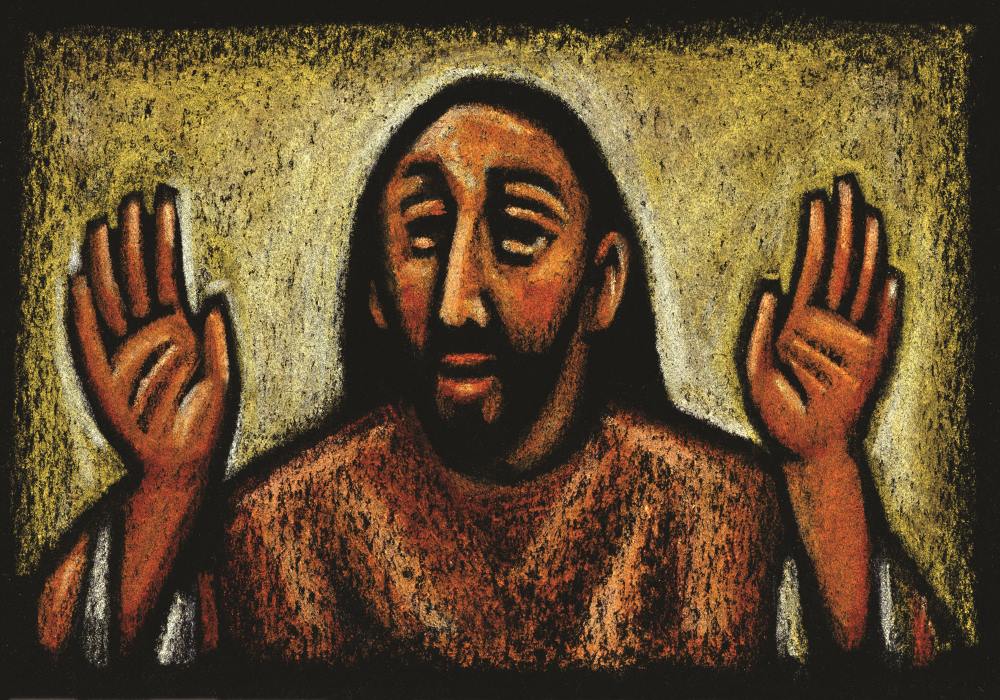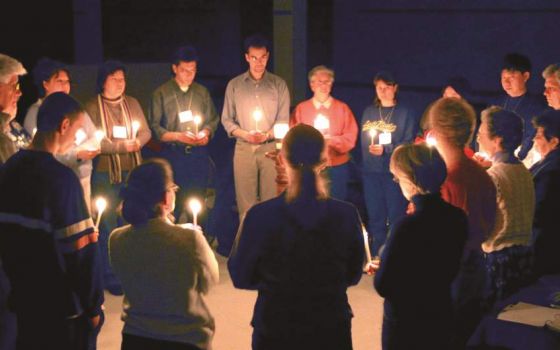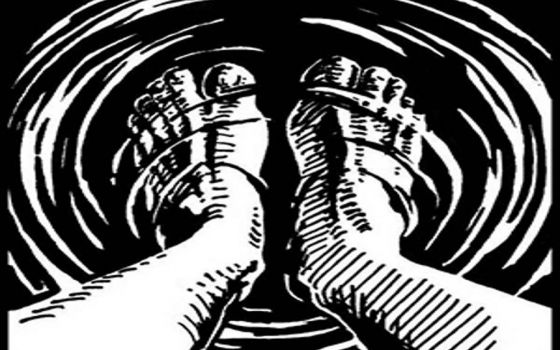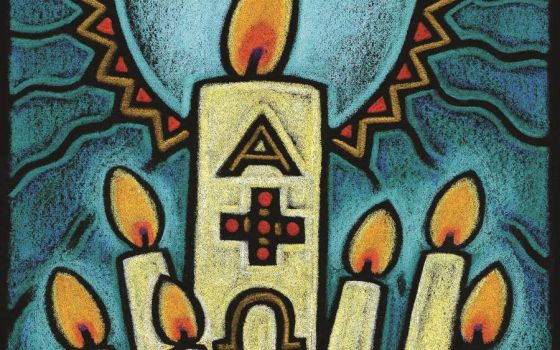
Art by Julie Lonneman
Every year, we suddenly realize that the season of Lent is just around the corner and every year, we sincerely promise: "This year I'm going to do better." In the past, our usual efforts at prayer, fasting and good works in preparation for Easter sometimes seem to lose focus. We need a conductor to keep us focused on the overall effort.
Many of the Lenten readings this year, feature a great conductor in the person of St. Luke the Evangelist. Just as an orchestra conductor provides a sensitive interpretation of the composer's mind and vision, so also this Gospel writer provides his own personal style in telling the story of redemption.
Perhaps a fresh approach to Lent might focus on one beautiful gem of a story which is unique to the Gospel of Luke. Under the baton of Luke, we hear its structural brilliance which not only draws us into the compelling story, but its inner power speaks to our own experience while shining new light on our attitudes and behavior. You guessed it — we are talking about the classic parable of the prodigal son (15:1-3; 11-32).
The young, immature son impulsively demanded his wealth and freedom. It proved to be self-destructive because he had no vision. Do we ever blindly snatch and run and thus trample on people emotionally or maybe even physically? Do we value and respect the dignity and feelings of others, especially those closest to us?
The young, immature son impulsively demanded his wealth and freedom. It proved to be self-destructive because he had no vision. Do we ever blindly snatch and run and thus trample on people emotionally or maybe even physically? Do we value and respect the dignity and feelings of others, especially those closest to us?
No longer attached to his roots, the young son squandered his family inheritance on his own unchecked appetites. Do we reverence our gifts and inheritance by using them wisely for productive purposes or do we waste and abuse our personal and communal resources? Does our lifestyle show a grateful respect for the delicate balance of our world moving toward ultimate fulfilment as revealed in the paschal mystery?
The young son hit his lowest point when he found himself starving among the pigs. Are we starving for something far more basic than food and comfort? Lent calls us to the truth. We have the capacity to love from our best selves and thus be open to be loved in return. How badly do we both want and need that love?
When he chose to return to his father, the life of the young son changed. Luke uses the phrase "coming to his senses" (15:17). He found his inner balance between mind, body and his emotions. Physical fitness and trips to the gym cannot substitute for finding inner wholeness. The son's return to the father was the triumph of gentleness and love replacing the tyranny of weakness and avoidance. Modern society worships dominance as the measure of success, even if it means deceit and violence. Our Lenten preparation needs to ask the question: When was the last time we had the strength and the courage to be gentle and ask to be forgiven?
Advertisement
Luke, always the compassionate and keen observer of human behavior, makes the point that the son prepared to meet his father by composing and practicing his homecoming speech. Have we ever expressed in words the deepest feelings of our heart? What were we trying to say and to whom were the words addressed at this most precious and vulnerable moment? It means going to the place where the Spirit of God touches our very core. It is a special place where words can rise to the level of prayer. Lent is the perfect time to learn to speak and pray from our heart.
Luke, the maestro, brings the parable to its climax, not with a clash of cymbals and trumpet fanfare, but with a wordless ballet. Suddenly, the emerging moment is too powerful for words and two people with broken hearts can only run toward each other in the hope of finding healing and fullness at long last. This parable shaped by Luke inspired Rembrandt's powerful painting of silent healing communion. That tender embrace of father and son calls us to our own embrace of silence. Does our supportive loving silence speak to those near and dear to us of things too precious for words? Does our silence in fact open us to a new kind of listening? Do we listen deeply to the God's word during Lent with its call for forgiveness?
Finally, under Luke's baton, the intensity of deep encounter bursts forth in grateful celebration. The repentant return of the son heals the broken heart of the father, restores the community, and calls for a celebration of joyful gratitude. Unfortunately, some, like the older son, whose heart was frozen and constricted by the letter of the law, cannot celebrate healing. Can we cross the threshold of forgiveness and joy in order to celebrate new hope? To do this is to arrive at the heart of the paschal mystery.
Editor's note: This reflection was originally published in the February 2019 issue of Celebration. Sign up to receive daily Lenten reflections.







